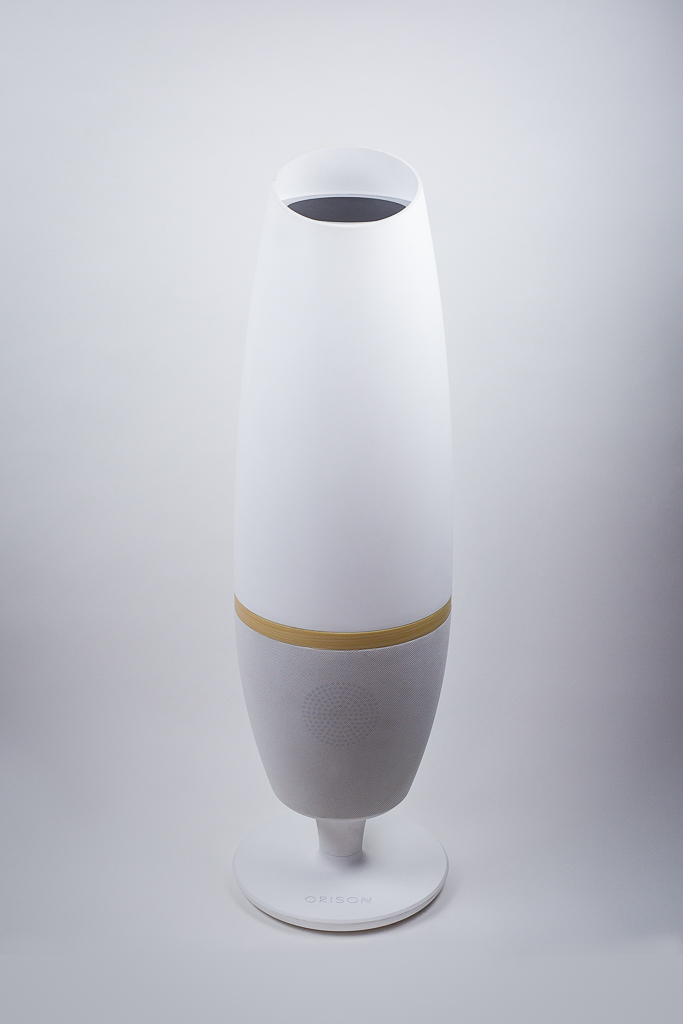
There is a small start-up company in California that appears to be setting the stage to challenge the world’s biggest companies in an emerging area of technology of tremendous importance.
Orison is preparing to start producing home battery systems which have a legitimate chance of changing the way many consumers and businesses interact with the electrical grid. While Orison is just one small company, it is significant as a marker of what might be the next wave of technology innovation.
There has been a lot of talk in the last couple of years about the alternative energy revolution, and rightly so. The changes happening in solar and wind are significant, but what might be even more significant are the changes happening in energy infrastructure. Demand response tools hold enormous promise both for helping individuals save money and helping utilities improve profits. And perhaps the most interesting tool of all in this space right now is the wave of emerging grid-scale and home battery systems.
Oilprice.com: Who Will Be Left Standing At The End Of The Oil War
The most famous battery systems right now are Tesla’s PowerWall and grid scale batteries. Whatever you think of Tesla, Elon Musk pulled an ingenious move in developing this side of the business as analysts are nearly universally positive about the opportunities in that business sector. What’s interesting though is that for all of the talk about Tesla, Orison is quietly building a business that could gain a healthy level of market share and perhaps with the right backing, eventually rival Tesla’s operations.
Orison’s signature product is a home battery system that plugs directly into a wall outlet. Clifton and Orison are running a Kickstarter on the project currently (Note: I am not affiliated with the Kickstarter project in any way – simply an interested observer). It’s small enough to be shipped to a customer’s home or office by FedEx and it requires no special skills or equipment to install.
According to Eric Clifton, the founder of the company, the firm grew out of the Demand Response market as a way to help control issues with peak energy needs problems. Clifton developed his system and then started getting interest in the system from the U.S. military for use in mundane applications like conventional military offices.
Oilprice.com: Wall Street Won’t Give Up On Its Energy Bets
Clifton’s experience derails one of the major critiques of Tesla and others in pursuit of residential scale battery markets. Critics claim that the systems are too expensive and too niche for most consumers. Orison’s experience suggests that an additional source of demand could come from conventional offices and commercial businesses.
What makes Orison worth watching is that Clifton’s product is so unique. In addition to being extremely easy-to-use, it does not require any special agreement with the power companies, or the installation of an inverter. Clifton estimates that the typical U.S. home would need about 8 of his roughly $1,600 ($1,200 through Kickstarter) units to hold enough energy to power a house without drawing from the grid.
From a business investment standpoint, the numbers behind Orison seem very compelling. Based on pre-orders from companies and individuals, Clifton expects to sell between 15,000 and 20,000 units this year, and 50,000 to 100,000 next year as the production at his small 28 person company expands. This fits with Musk’s comments about “crazy off the hook demand” for PowerWall batteries. At the mid-point of those numbers, Orison would do roughly $120 million in sales next year. Given the growth rate here, and the profit level of a typical industrial OEM, Orison should be worth tens of millions of dollars.
Oilprice.com: Electric Car War Sends Lithium Prices Sky High
Clifton is in the process of doing a Series A funding round with the eventual goal of selling Orison to a larger company – like Tesla. Now of course many things could happen between now and a sale of the company in the future, but the broader point is that if any of Orison’s numbers are at all realistic it suggests that tools in the energy infrastructure arena are a burgeoning market that investors should be considering carefully.
Perhaps the most interesting side of the whole Orison story is the identity of many of the groups most fervently interested in backing Orison; utility companies. The Series A funding round is being closely watched by various utilities around the globe that are interested in directly investing in Clifton’s venture. For all the talk about how renewable energy may lead to the death of utility companies, it seems that many utilities are thinking a step ahead already.
This article originally appeared on Oilprice.com
More Must-Reads from TIME
- Donald Trump Is TIME's 2024 Person of the Year
- Why We Chose Trump as Person of the Year
- Is Intermittent Fasting Good or Bad for You?
- The 100 Must-Read Books of 2024
- The 20 Best Christmas TV Episodes
- Column: If Optimism Feels Ridiculous Now, Try Hope
- The Future of Climate Action Is Trade Policy
- Merle Bombardieri Is Helping People Make the Baby Decision
Contact us at letters@time.com